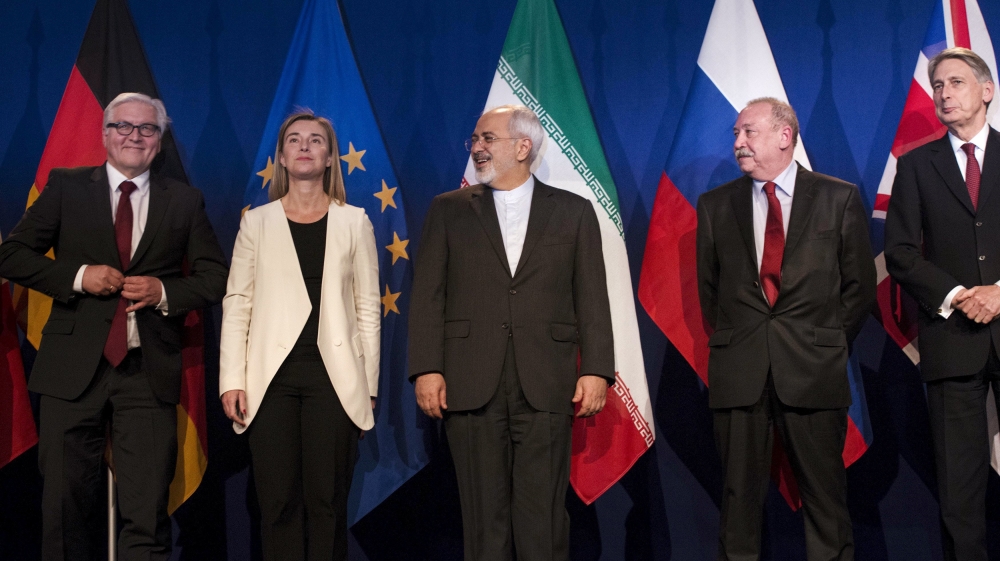Tariq Saeedi
Ashgabat, 15 July 2015 (nCa) — The Iran Nuclear Deal – officially named Joint Comprehensive Plan of Action (JCPOA) – is a great breakthrough. Its success, however, is based on mutual trust and adherence to the specifics by both sides.
As is the case with every legal document, there are certain loopholes that could be exploited for whatever reason.
In the section NUCLEAR, subsection A. ENRICHMENT, ENRICHMENT R&D, STOCKPILES, the clause 7 says in part:
“Enriched uranium in fabricated fuel assemblies from Russia or other sources for use in Iran’s nuclear reactors will not be counted against the above stated 300 kg UF6 stockpile, if the criteria set out in Annex I are met with regard to other sources.”
This clause can be used to bypass the cap on 300 kg limit on UF6 stockpile.
The section on DISPUTE RESOLUTION MECHANISM, article 36 says:
If Iran believed that any or all of the E3/EU+3 were not meeting their commitments under this JCPOA, Iran could refer the issue to the Joint Commission for resolution; similarly, if any of the E3/EU+3 believed that Iran was not meeting its commitments under this JCPOA, any of the E3/EU+3 could do the same. The Joint Commission would have 15 days to resolve the issue, unless the time period was extended by consensus. After Joint Commission consideration, any participant could refer the issue to Ministers of Foreign Affairs, if it believed the compliance issue had not been resolved. Ministers would have 15 days to resolve the issue, unless the time period was extended by consensus. After Joint Commission consideration – in parallel with (or in lieu of) review at the Ministerial level – either the complaining participant or the participant whose performance is in question could request that the issue be considered by an Advisory Board, which would consist of three members (one each appointed by the participants in the dispute and a third independent member). The Advisory Board should provide a non-binding opinion on the compliance issue within 15 days. If, after this 30-day process the issue is not resolved, the Joint Commission would consider the opinion of the Advisory Board for no more than 5 days in order to resolve the issue. If the issue still has not been resolved to the satisfaction of the complaining participant, and if the complaining participant deems the issue to constitute significant nonperformance, then that participant could treat the unresolved issue as grounds to cease performing its commitments under this JCPOA in whole or in part and/or notify the UN Security Council that it believes the issue constitutes significant non-performance.
Potentially, it means that every dispute or difference of position will provide Iran with a window of 35 days timeframe. In addition to the cumbersome procedure that it will trigger every time, this 35 days time slot will be adequate to change the nature and complexion of the original concern.
The Annex I – Nuclear Related Measures, section Q. ACCESS (to enrichment facilities) clause 77 says:
“Iran may propose to the IAEA alternative means of resolving the IAEA’s concerns that enable the IAEA to verify the absence of undeclared nuclear materials and activities or activities inconsistent with the JCPOA at the location in question, which should be given due and prompt consideration.”
This provides additional space for Iran to put more time between when it is suspected of some violation and the trigger-back of any sanctions.
The section on DISPUTE RESOLUTION MECHANISM, when dealing with the prospects of re-imposition of sanction in case of default, clause 37 says in part:
“In such event, these provisions would not apply with retroactive effect to contracts signed between any party and Iran or Iranian individuals and entities prior to the date of application, provided that the activities contemplated under and execution of such contracts are consistent with this JCPOA and the previous and current UN Security Council resolutions.”
In essence, this provision can be used by Iran as an off-on switch to continue bagging contracts with foreign entities while still in defiance.
<<<>>>
The complete text of the JCPOA can be found on many websites including the official site of the ministry of foreign affairs of Russia: http://www.mid.ru/foreign_policy/news/-/asset_publisher/cKNonkJE02Bw/content/id/1571042
The PDF version of the JCPOA can be downloaded from a link on this page: http://www.vox.com/2015/7/14/8958031/iran-nuclear-deal-full-text
